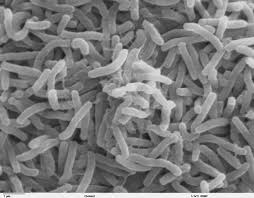
记忆方法
记住“cholera”的一个简单方法是将其分解为“chole”(与胆汁有关)和“-era”(表示状态或情况)。想象一种疾病,它的名字听起来像“胆汁”加上某种“状态”,这种状态因其特征而听起来像是“胆汁性的”,即与腹泻和脱水等消化问题相关,这正是霍乱的特点。
以上内容由AI生成, 仅供参考和借鉴
中文词源
cholera 霍乱
来自chol, 胆囊,同gall. 指一种由胆囊引起的腹泻疾病。
英语词源
- cholera
-
cholera: [14] Greek kholéra originally meant ‘illness caused by choler, bilious attack’; it was a derivative of kholé ‘bile’ (which is related to English gall). Passing into Latin as cholera, it began to be used for ‘bile’ itself, both in the physiological sense and as representing one of the four ancient humours, ‘anger’. It had that sense when first adopted into English, and into French, where it became colère (source of English choler [14]).
It was revived as a term for a severe digestive disorder, involving vomiting, diarrhoea, etc, in the 17th century, and in the 19th century was applied (from the similarity of the symptoms) to the often fatal infectious disease caused by the bacterium Vibrio comma.
=> gall, melancholy - cholera (n.)
- late 14c., "bile, melancholy" (originally the same as choler), from Middle French cholera or directly from Late Latin cholera, from Greek kholera "a type of disease characterized by diarrhea, supposedly caused by choler" (Celsus), from khole "gall, bile," from khloazein "to be green," from khloros (see Chloe). But another sense of khole was "drainpipe, gutter."
Revived 1560s in classical sense as a name for a severe digestive disorder (rarely fatal to adults); and 1704 (especially as cholera morbus), for a highly lethal disease endemic in India, periodically breaking out in global epidemics, especially that reaching Britain and America in the early 1830s.
权威例句
- 1. Conditions were ripe for an outbreak of cholera.
- 霍乱即将暴发。
- 2. Cholera is a bacterial infection.
- 霍乱是一种细菌感染。
- 3. An inoculation against cholera is recommended.
- 建议注射预防霍乱的疫苗。
- 4. In Peru, a cholera outbreak continues to spread.
- 霍乱在秘鲁各地相继爆发。
- 5. They feared a new cholera pandemic.
- 他们担心新一轮的霍乱大流行。